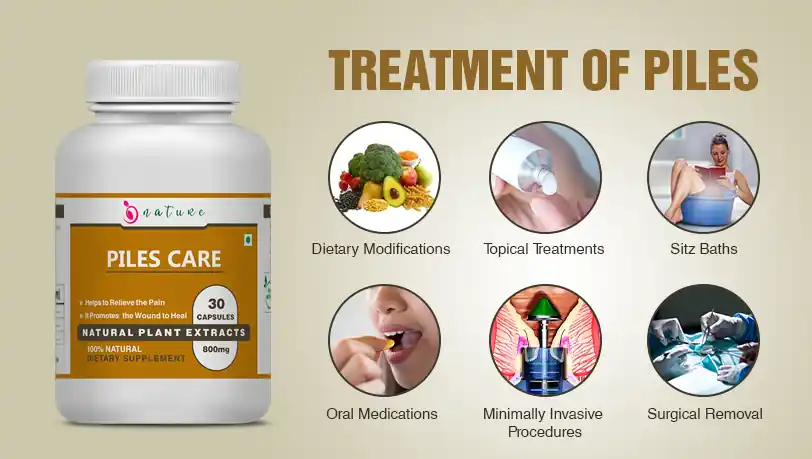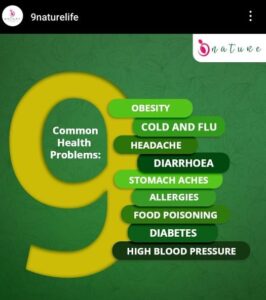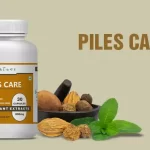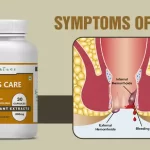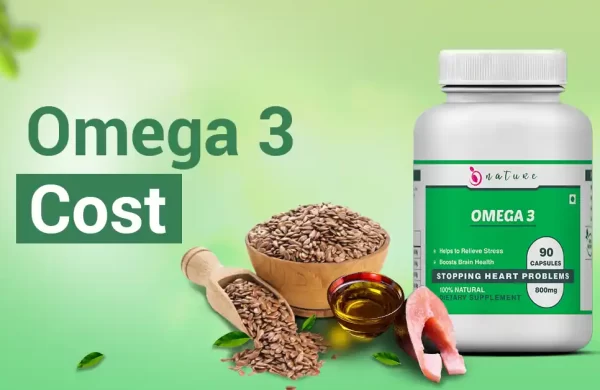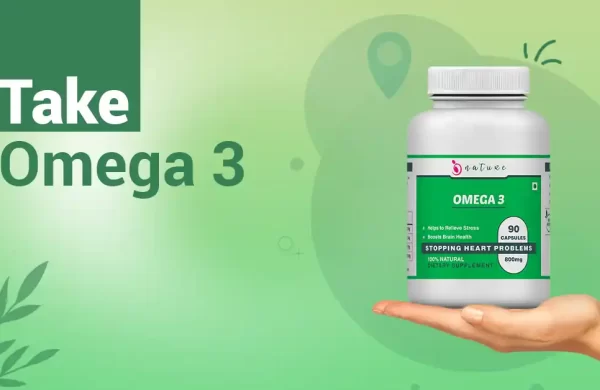Treatment of piles, otherwise called hemorrhoids, can be an excruciating and troubling experience. In this complete aide, we’ll take you on an excursion from agony to alleviation by assisting you with finding the most ideal medicines that anyone could hope to find. Whether you’re battling with the uneasiness of internal or external piles, we’ll dive into different choices, including way-of-life changes, dietary changes, prescriptions, and, surprisingly, surgeries. With the right data and direction, you can find the best piles of treatment customized to your necessities, permitting you to recover your solace and personal satisfaction. (Hosch, S.B., Knoefel, W.T., Pichlmeier, U., Schulze, V., Busch, C., Gawad, K.A., Broelsch, C.E. and Izbicki, J.R., 1998.)
What Is Treatment Of Piles
The treatment of Piles, or hemorrhoids, plans to ease side effects, advance mending, and work on general prosperity. Gentle cases can frequently be dealt with Lifestyle changes, for example, a high-fiber diet, expanded liquid admission, and standard activity. Over-the-counter creams and balms might give impermanent alleviation from agony and tingling. In additional extreme cases, clinical mediations like elastic band ligation, sclerotherapy, or surgeries might be suggested.
These mediations help psychologists eliminate hemorrhoids, giving long-haul alleviation. Also, normal cures like sitz showers and homegrown enhancements might be utilized to mitigate side effects and advance recuperation. Meeting with medical care proficient is fundamental to deciding the most reasonable therapy approach in view of individual conditions. (Peng, B.C., Jayne, D.G. and Ho, Y.H., 2003.)
About Piles Treatment
With regards to the treatment of Piles care, there are different home cures that can assist with easing less than overwhelming agony, expansion, and aggravation. Here are a few compelling home medicines for piles hemorrhoids treatment:
- Eat high-fiber food varieties: Increase your intake of fruits, vegetables, and entire grains. These fiber-rich food varieties soften the stool and add mass, making it simpler to pass without stressing, which can disturb hemorrhoid side effects. Begin integrating fiber into your food continuously to keep away from issues with gas.
- Utilize skin medicines: Apply over-the-counter hemorrhoid creams, salves, or suppositories that contain hydrocortisone. These can assist with lessening irritation and give transitory alleviation. Witch hazel cushions or those containing desensitizing specialists can likewise be alleviating.
- Take warm baths or sitz showers: soak your anal area in plain warm water for around 10 to 15 minutes, a few times each day. You can utilize a sitz shower, which fits over the toilet, for added comfort. Warm water decreases expansion and gives help from distress.
- Utilize oral painkillers: Impermanent alleviation from agony can be accomplished by assuming control of over-the-counter painkillers like acetaminophen (Tylenol), anti-inflammatory herbal medicine, or ibuprofen. Be that as it may, consistently follow the suggested measurements and counsel your PCP assuming you have any fundamental ailments or are on different prescriptions.
Piles Cause And Treatment:
Piles, medicinally known as hemorrhoids, are a typical and frequently excruciating condition that influences a large number of individuals around the world. They can happen in all kinds of people, normally between the ages of 45 and 65. Piles are enlarged and excited veins that foster in and around the rectum and butt. In this far-reaching guide, we will investigate the reasons for Piles and the different treatment ,herbal medicine piles hemorrhoids treatment choices accessible to help with this discomforting condition. (Yu, Y., Yao, Y., An, N., Lv, Q., Chen, X., Xu, Z. and Yang, Y., 2023.)
Causes of Piles :
Understanding the causes of piles is crucial in preventing and effectively managing the condition. Piles develop when there is increased pressure on the blood vessels in the rectum and anus. Several factors contribute to this increased pressure, including:
1. Straining During Bowel Movements: One of the primary causes of piles is excessive straining during bowel movements. This frequently happens because of persistent stoppage or loose bowels, prompting expanded tension in the rectal veins.
2. Pregnancy: Pregnant women are more susceptible to developing piles due to increased pressure on the pelvic area from the growing uterus. Hormonal changes during pregnancy can likewise add to the advancement of heaps.
3. Heavy Lifting: Frequent heavy lifting can increase abdominal pressure, potentially causing or worsening piles.
4. Obesity: Being overweight or obese increases the pressure on the rectal area, making the development of piles more likely.
5. Age: The risk of developing piles tends to increase with age, as the tissues supporting the blood vessels in the rectum and anus weaken over time.
6. Genetics: A family history of piles may increase your susceptibility to the condition.
Treatment Of Piles
The good news is that piles are treatable, and there are various treatment of piles options available to alleviate symptoms and provide relief. The decision of treatment relies upon the seriousness of the condition and individual inclinations. Here are some common piles treatment options:
1. Dietary Modifications: A high-fiber diet is often recommended to soften stools and make bowel movements more comfortable. Food varieties wealthy in fiber, like organic products, vegetables, entire grains, and vegetables, can assist with forestalling blockage and lessen the risk of piles.
2. Topical Treatments: Over-the-counter creams, salves, or suppositories containing fixings like hydrocortisone can assist with alleviating tingling and aggravation related to piles. These skin medicines are regularly applied straightforwardly to the impacted region.
3. Sitz Baths: Soaking in warm water for 10 to 15 minutes several times a day can provide relief from discomfort and help reduce swelling.
4. Oral Medications: Pain killers, like ibuprofen or acetaminophen, can assist with overseeing torment related to piles. Now and again, specialists might endorse drugs to diminish aggravation and inconvenience.
5. Minimally Invasive Procedures: When conservative treatments are ineffective, medical procedures may be considered. These include rubber band ligation, in which a small rubber band is placed around the base of the pile to cut off its blood supply, causing it to shrink and fall off. Sclerotherapy involves injecting a solution into the blood vessel to shrink the pile. Infrared coagulation uses heat to shrink the pile.
6. Surgical Removal: In severe cases or when other treatments have failed, surgical removal of piles may be necessary. Traditional hemorrhoidectomy involves removing the swollen blood vessels, while newer procedures like stapled hemorrhoidopexy (PPH) involve using staples to reposition the hemorrhoidal tissue.
Prevention Is Key:
Preventing piles is often more comfortable than treatment of piles. Here are some tips to help reduce the risk of developing piles:
• Keep a high-fiber diet to forestall blockage.
• Stay well-hydrated.
• Avoid straining during bowel movements.
• Exercise regularly to improve blood flow and prevent excess pressure in the rectal area.
• If you are pregnant, discuss preventive measures with a healthcare professional.
In conclusion, piles are a common condition that can cause discomfort and pain, but they are treatable. Understanding the causes of piles and adopting preventive measures can significantly reduce the risk of developing this condition. If you do experience symptoms of piles, consult a healthcare professional for a proper diagnosis and guidance on the most suitable piles hemorrhoids treatment approach for your specific case. Early intervention and lifestyle modifications can make a substantial difference in managing and alleviating the discomfort caused by piles.
Piles Hemorrhoids Treatment
With these home medicines, piles hemorrhoids treatment side effects normally work soon. In the event that you don’t encounter alleviation inside this time or on the other hand assuming you have serious agony or dying, seeing your primary care physician for treatment of piles is significant. Your primary care physician might suggest over-the-counter creams, balms, suppositories, or cushions containing fixings like witch hazel, hydrocortisone, or lidocaine assuage agony and tingling briefly. It is fundamental to note that drawn-out utilization of over-the-counter steroid creams can thin the skin, so it is essential to adhere to the guidelines and counsel your primary care physician assuming side effects continue past the suggested time period.
In spite of home remedies, way-of-life alterations, for example, keeping up with great cleanliness, staying away from excessive stressing during defecations, remaining genuinely dynamic, and drinking a lot of water can help prevent and herbal medicine oversee piles hemorrhoids treatment.
On the off chance that moderate therapies don’t give adequate alleviation or on the other hand on the off chance that you have repeating or serious hemorrhoids, your PCP might recommend other clinical intercessions, like elastic band ligation, sclerotherapy, or medical procedure, contingent upon the seriousness of the condition. Keep in mind, it’s in every case best to talk with medical care proficient for legitimate findings and direction on the most reasonable therapy approach for your particular instance of piles hemorrhoids treatment.
Internal Piles Treatment:
Internal piles, also known as internal hemorrhoids, can be uncomfortable and disrupt daily life. Luckily, there are a few compelling medicines accessible to lighten the symptoms and give help.
Causes Of Internal Piles::
Before diving into treatment options, it’s essential to understand the common causes of internal piles. These causes often involve increased pressure in the lower rectum and anal area, leading to the swelling of blood vessels. Contributing factors include:
1. Straining During Bowel Movements: Frequent straining during bowel movements, often due to chronic constipation, is a leading cause of internal piles. The pressure applied during straining can lead to the development or worsening of hemorrhoids.
2. Pregnancy: The increased pressure on the pelvic area during pregnancy can cause internal piles to develop or exacerbate existing ones. Hormonal changes during pregnancy can likewise add to the improvement of heaps.
3. Heavy Lifting: Lifting heavy objects frequently can increase abdominal pressure, potentially leading to the development of internal piles.
Internal Piles Treatment:
1. Dietary Modifications: A high-fiber diet can soften stools and make bowel movements more comfortable. This can diminish the stress on the butt-centric region. Incorporate fruits, vegetables, whole grains, and plenty of water into your daily diet.
2. Topical Treatments: Over-the-counter creams, treatments, or suppositories containing fixings like hydrocortisone can assist with easing tingling and irritation related to internal piles.
3. Sitz Baths: Soaking in warm water for 10 to 15 minutes several times a day can provide relief from discomfort. This can also help reduce swelling.
4. Prescription Medications: In some cases, doctors may prescribe medications to reduce inflammation and discomfort, especially for severe cases of internal piles.
5. Minimally Invasive Procedures: If conservative treatments don’t provide relief, medical procedures like rubber band ligation or sclerotherapy can be considered. These procedures help shrink and eliminate internal piles.
6. Surgical Removal: In rare and severe cases, surgical removal of internal piles may be necessary. This is ordinarily saved for situations where different medicines have not been successful.
Remember that prevention is crucial. Keeping a sound way of life, including standard activity, a fair eating routine, and legitimate hydration, can assist with forestalling the turn of events or repeat of internal piles.
External Piles Treatment:
External piles, also known as external hemorrhoids, can cause significant discomfort and pain. Luckily, there are a few compelling medicines accessible to lighten the symptoms and give help.
Causes Of External Piles:
Understanding the causes of external piles is essential to addressing the condition effectively. Some common causes include:
1. Straining During Bowel Movements: Frequent straining during bowel movements, often due to constipation or diarrhea, can lead to the development of external piles.
2. Chronic Constipation or Diarrhea: Prolonged episodes of constipation or diarrhea can contribute to the formation of external piles.
3. Pregnancy and Child birth: The increased pressure on the pelvic area during pregnancy and the strain of childbirth can lead to the development or worsening of external piles.
4. Sitting or Standing for Prolonged Periods: Jobs or lifestyles that involve extended periods of sitting or standing can increase pressure on the rectal area, potentially leading to external piles.
External Piles Treatment Options:
1. Topical Creams and Ointments: Over-the-counter creams or prescription medications containing hydrocortisone or lidocaine can help alleviate pain and itching associated with external piles.
2. Warm Sitz Baths: Soaking in a warm bath for 10 to 15 minutes several times a day can provide relief from discomfort and help reduce swelling.
3. Pain Medications: Over-the-counter painkillers, like ibuprofen or acetaminophen, can assist with overseeing torment related to external piles.
4. Witch Hazel: Applying witch hazel pads or ointment can help soothe and reduce inflammation in the anal area.
5. Minimally Invasive Procedures: In cases where conservative treatments are ineffective, medical procedures like rubber band ligation or surgical excision may be considered to remove or shrink external piles.
6. Lifestyle Changes: Preventing constipation through dietary adjustments, increased fiber intake, and staying well-hydrated can reduce the risk of external piles.
It’s essential to consult a healthcare professional for a proper diagnosis and guidance on the most suitable treatment of piles approach for your specific case of external piles. Early intervention and lifestyle modifications can significantly improve the management of this condition.
You can also read: Revolutionize Your Piles Care Routine with Capsules

